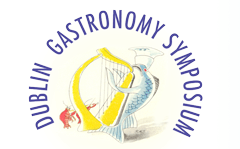Start Date
28-5-2024 2:30 PM
End Date
28-5-2024 2:45 PM
Description
Examinations of Roman cuisine often downplay the role of beer in the ancient Roman diet seeing it as a symbol of barbarity. This essay examines the plausibility of beer as a standard component of the Roman soldier’s diet and seeks to highlight when it may have become necessary for military advancement. Julius Caesar’s reliance on auxiliary forces to campaign in the North from 58-51 BCE ensured that cultures known for producing beer influenced legionary forces reliant on local resources to survive. This essay also asserts the implausibility of wine consumption amongst Caesar’s men and concludes that the acceptance of beer as a standard component of the Roman soldier’s diet begins with Caesar’s campaigns in Gaul and Britain.
Creative Commons License

This work is licensed under a Creative Commons Attribution-NonCommercial-Share Alike 4.0 International License.
DOI
https://doi.org/10.21427/fm8v-7549
Caesar’s Cervisia
Examinations of Roman cuisine often downplay the role of beer in the ancient Roman diet seeing it as a symbol of barbarity. This essay examines the plausibility of beer as a standard component of the Roman soldier’s diet and seeks to highlight when it may have become necessary for military advancement. Julius Caesar’s reliance on auxiliary forces to campaign in the North from 58-51 BCE ensured that cultures known for producing beer influenced legionary forces reliant on local resources to survive. This essay also asserts the implausibility of wine consumption amongst Caesar’s men and concludes that the acceptance of beer as a standard component of the Roman soldier’s diet begins with Caesar’s campaigns in Gaul and Britain.
